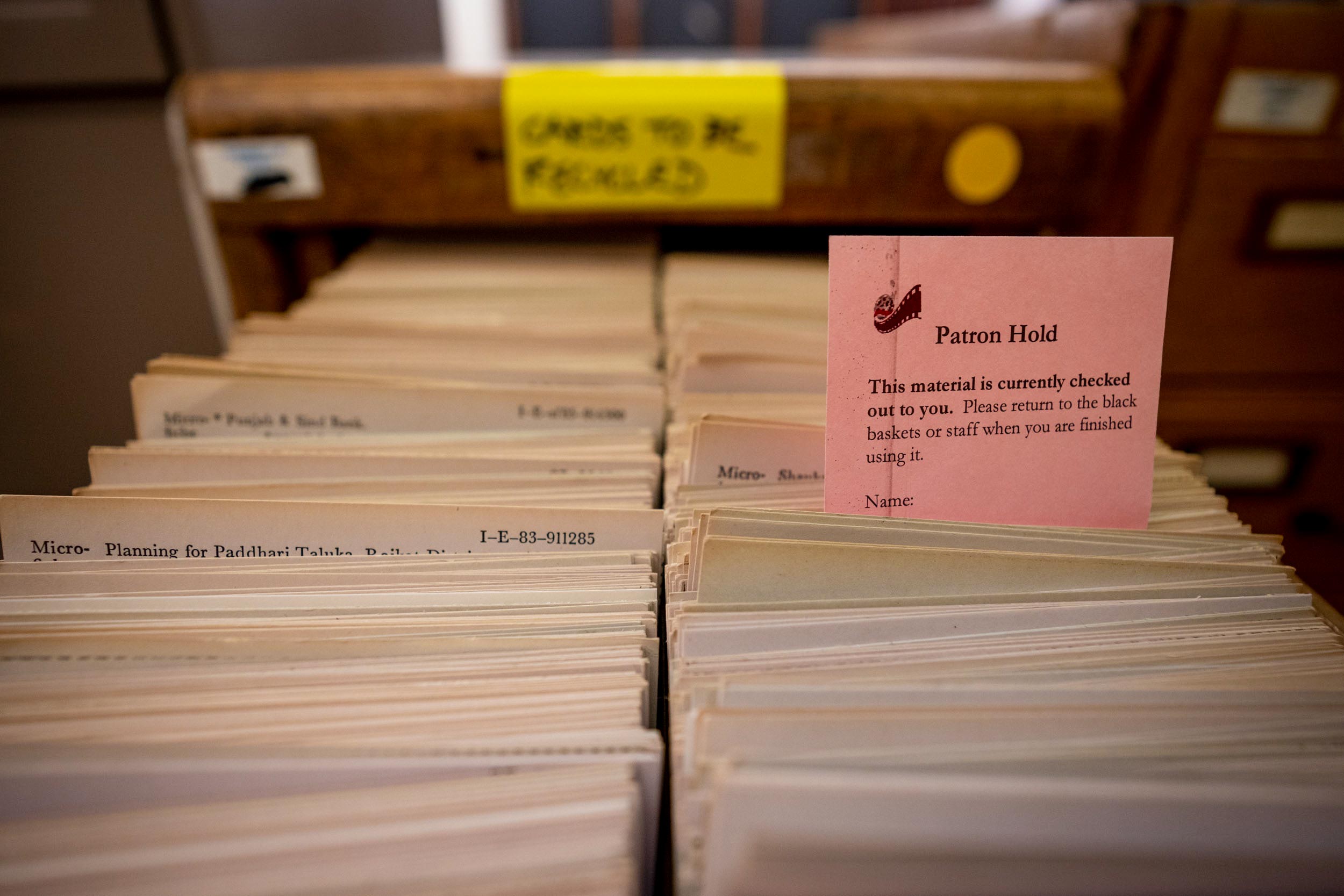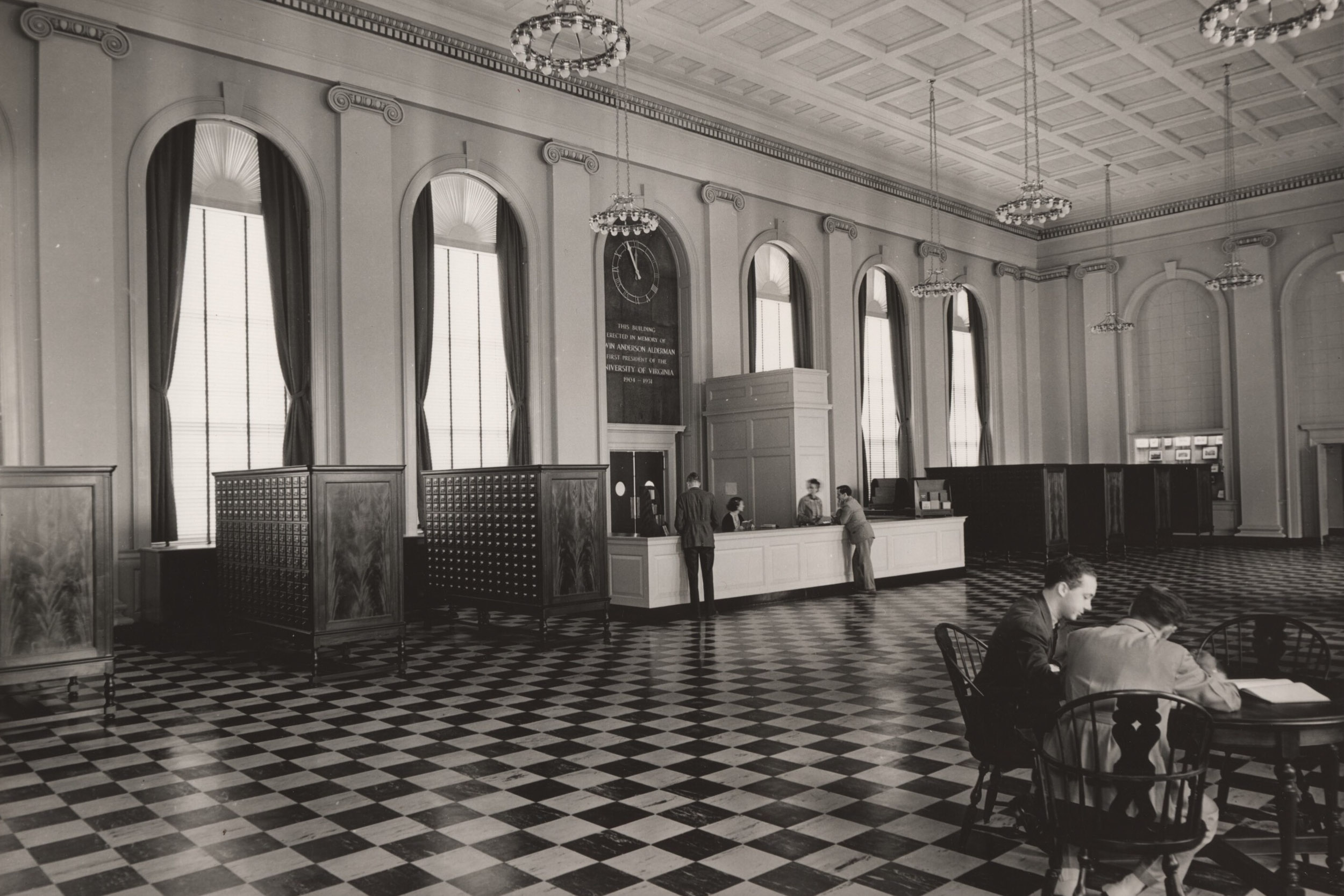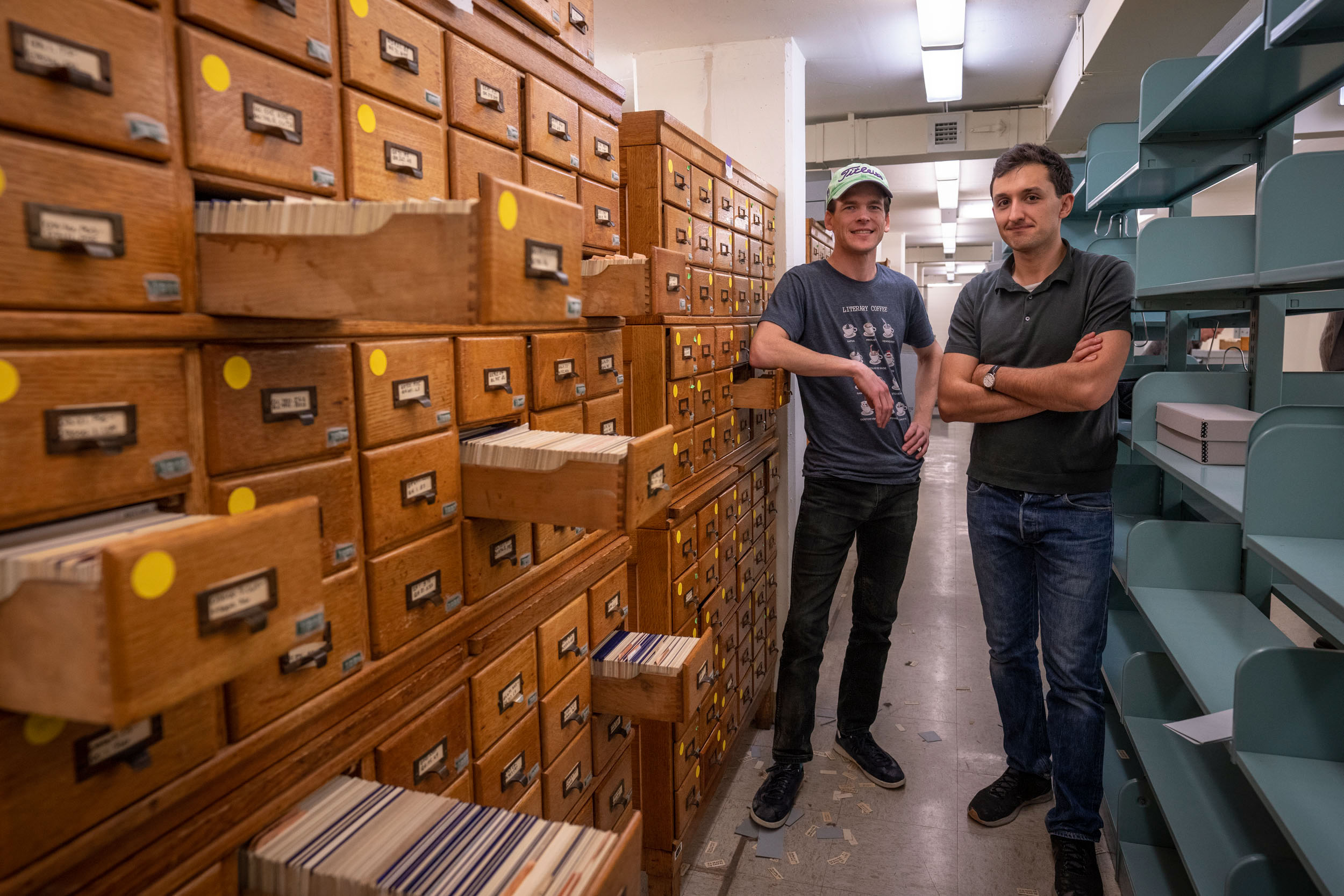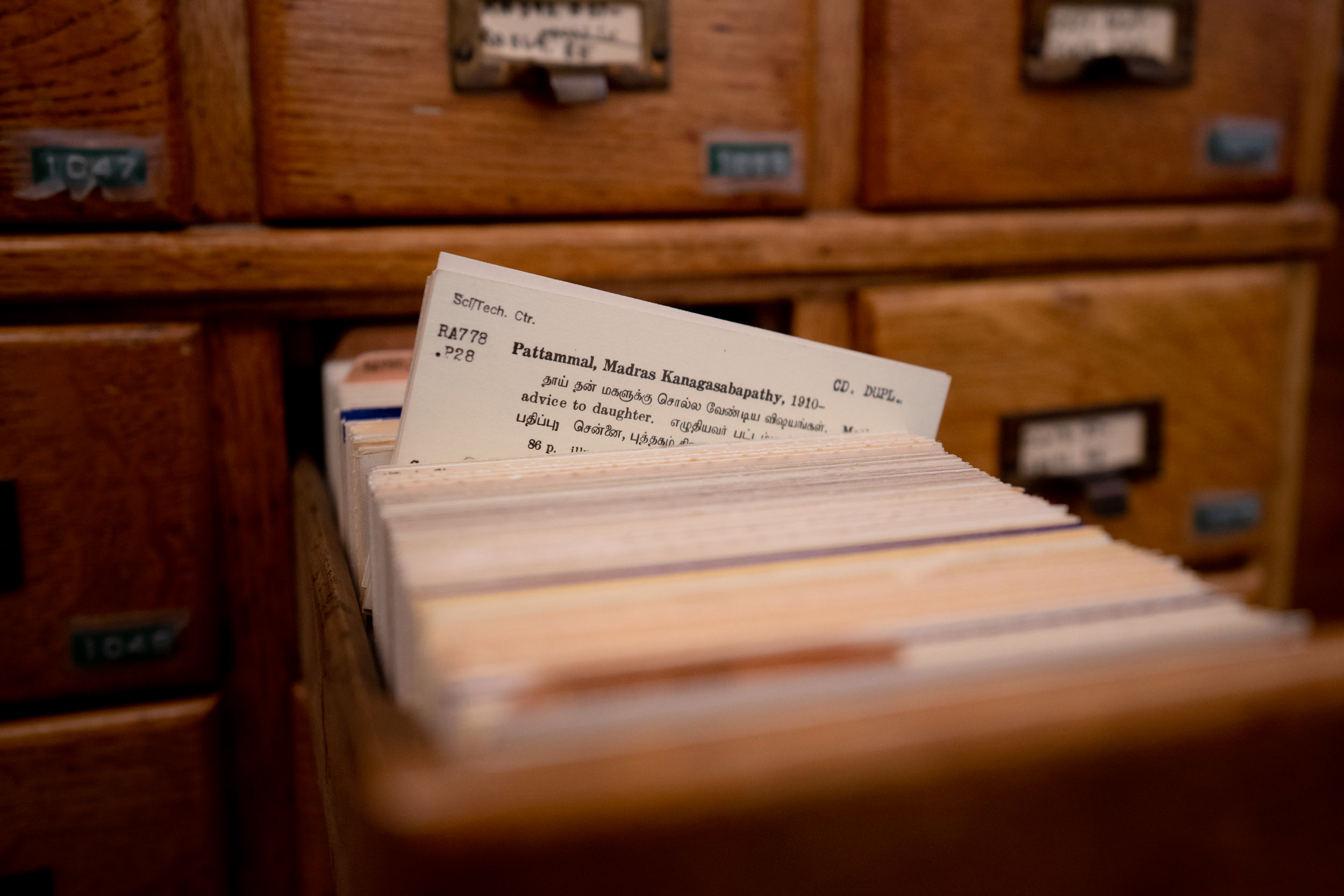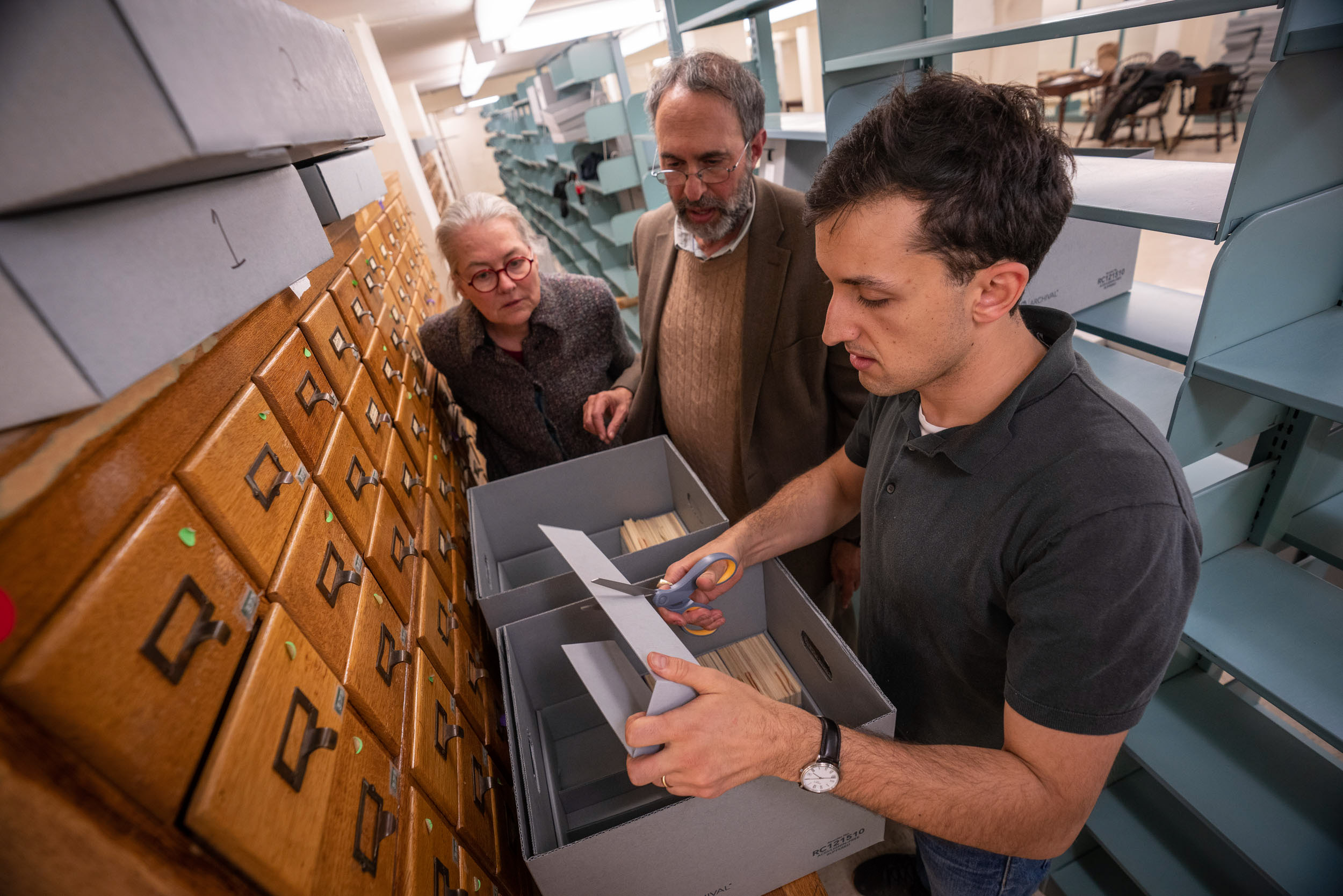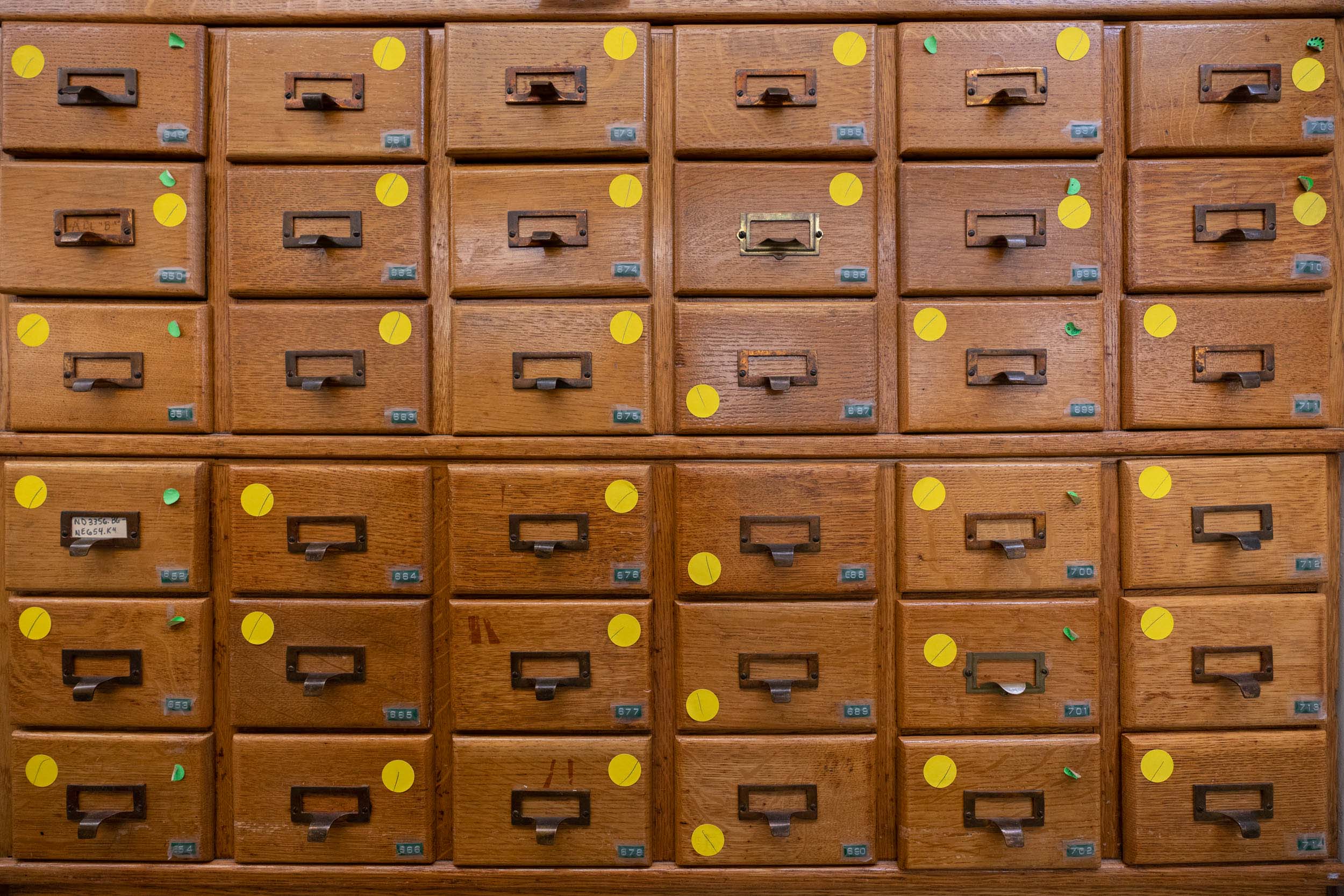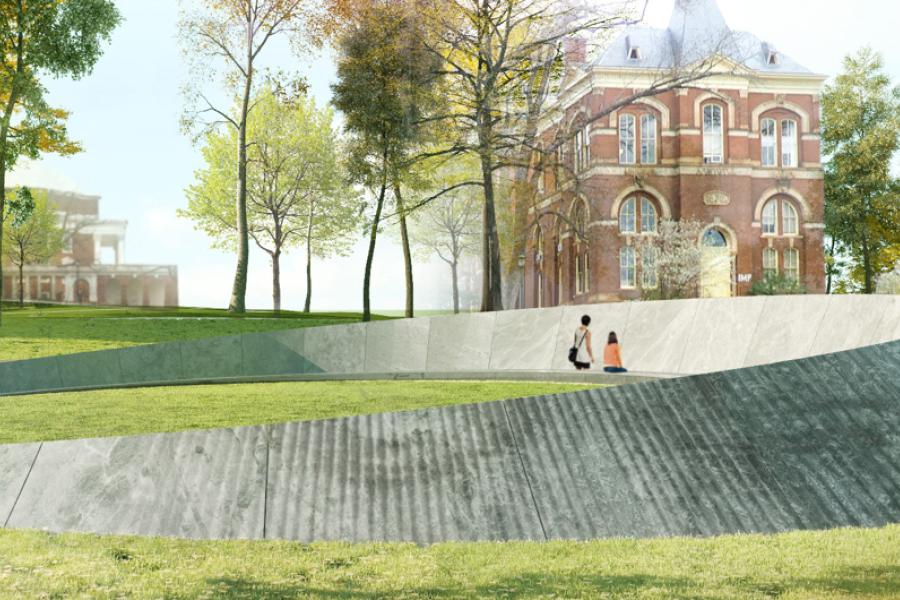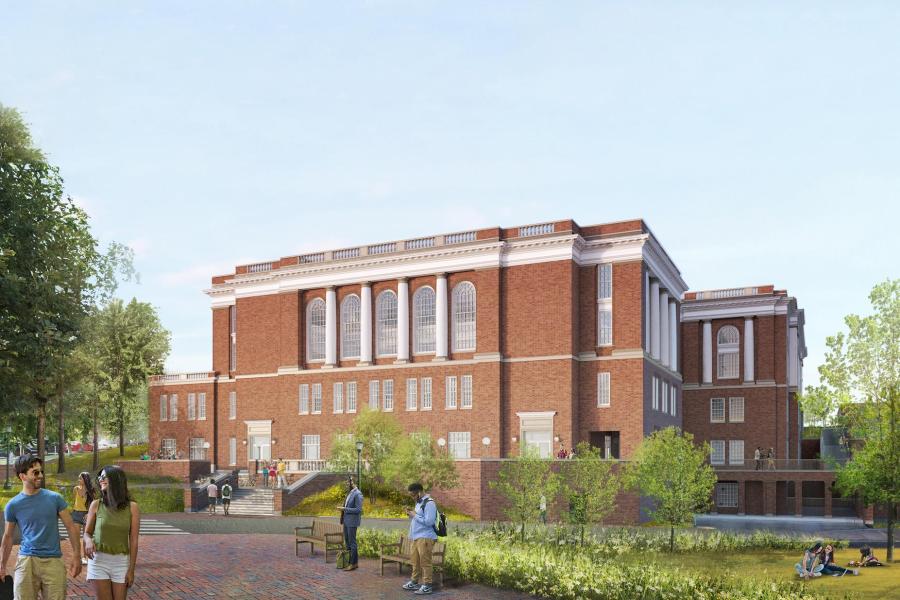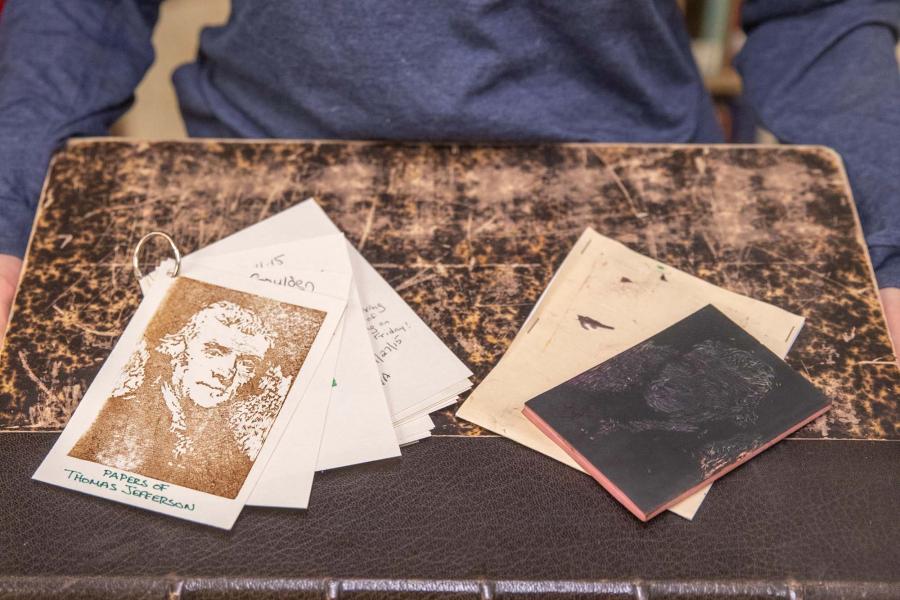As preparations continue for the renovation of Alderman Library, which replaced the Rotunda as UVA’s central library in 1938, a volunteer effort is preserving one small part of its past: the card catalog.
Created over a 50-year span from 1939 to 1989, that catalog grew to about 4 million cards in 65 cabinets with 4,000 drawers.
These little index cards from the library’s old physical card catalog might contain information that is unique about a particular book – and therefore, the library’s holdings and the University’s history. The information neatly typed on the cards – which library workers sometimes supplemented with handwritten notes on front and back – includes details that in many cases are not typically part of the electronic catalog system, Virgo, that the University Library switched to in 1989. At the time, the catalog was transferred by scanning that captured only the front of the cards.
